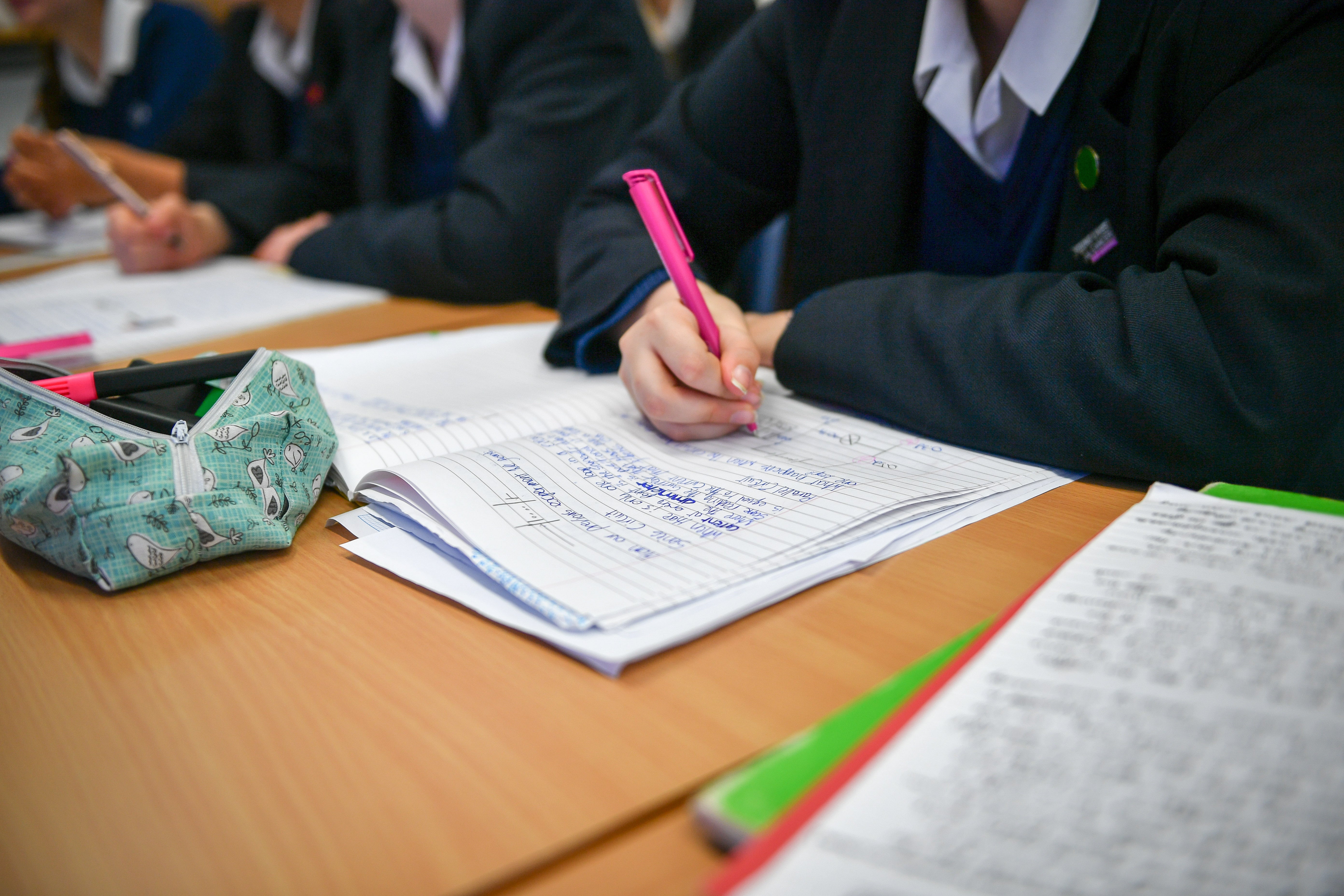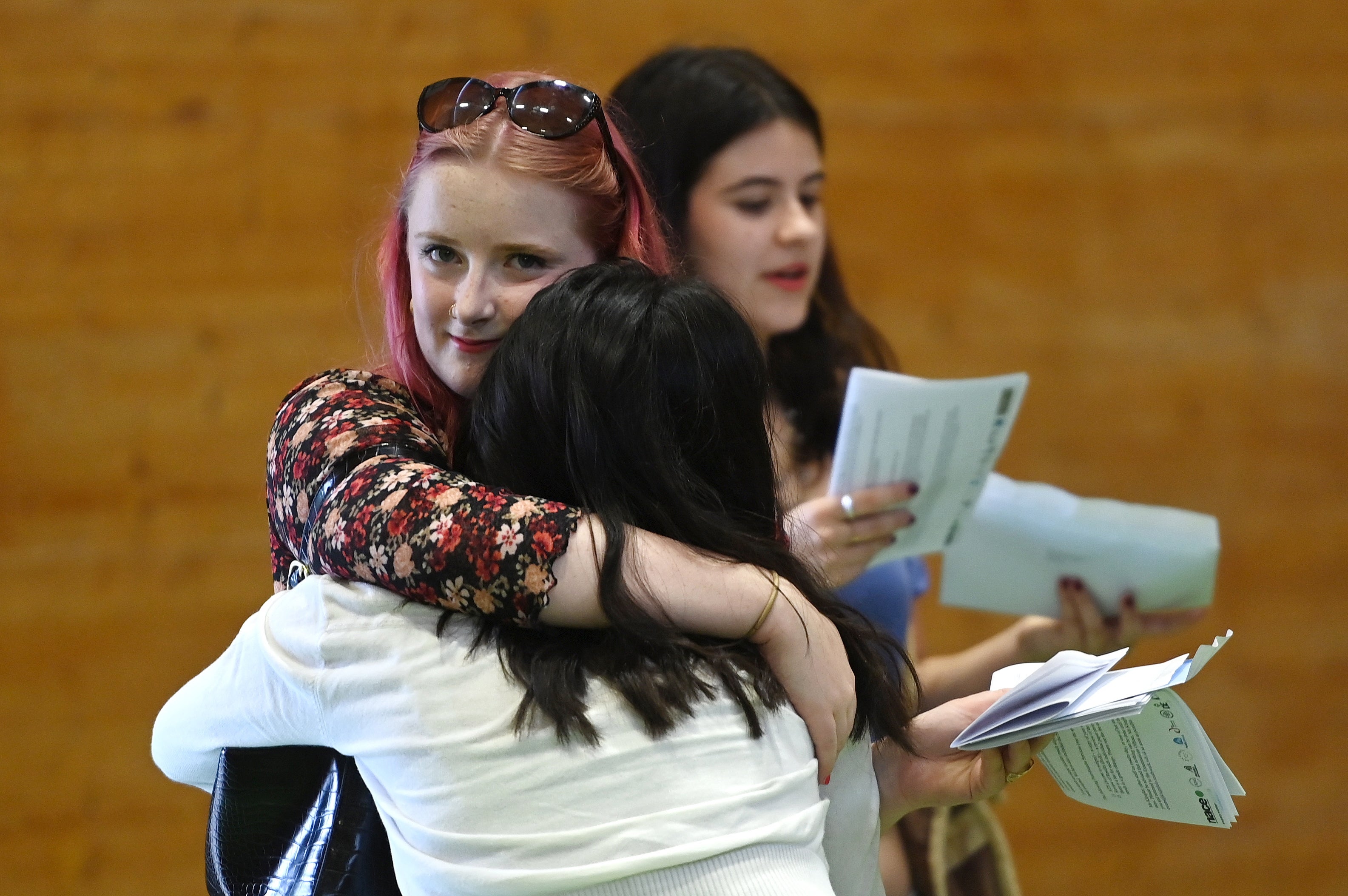GCSEs: Fears students may be forced to drop full-time education to get work amid cost of living crisis
Exclusive: Likely ‘some students will go straight into work due to financial concerns’, social mobility charity boss says

Your support helps us to tell the story
From reproductive rights to climate change to Big Tech, The Independent is on the ground when the story is developing. Whether it's investigating the financials of Elon Musk's pro-Trump PAC or producing our latest documentary, 'The A Word', which shines a light on the American women fighting for reproductive rights, we know how important it is to parse out the facts from the messaging.
At such a critical moment in US history, we need reporters on the ground. Your donation allows us to keep sending journalists to speak to both sides of the story.
The Independent is trusted by Americans across the entire political spectrum. And unlike many other quality news outlets, we choose not to lock Americans out of our reporting and analysis with paywalls. We believe quality journalism should be available to everyone, paid for by those who can afford it.
Your support makes all the difference.Fears have been raised that students may have to give up full-time education after their GCSEs to take up work due to the cost of living crisis.
Hundreds of thousands of pupils are preparing to pick up results on Thursday, when both GCSE and VTQ grades will be published.
Students may choose to continue studying at college or sixth-form, while others may choose to go straight into the world of work, for example with a paid apprenticeship.
But charities and think tanks have warned that some students may feel their hands are tied in the face of increasing financial pressures on families, due to rising energy bills and inflation while wages fail to keep up.
Sir Peter Lampl, who founded the social mobility charity the Sutton Trust, told The Independent: “The impact of the pandemic coupled with the cost of living crisis has resulted in a difficult year for all pupils, especially those from low-income households.
“It’s likely some of these students will go straight into work after school due to financial concerns.”
Have you been affected by this story? Please email zoe.tidman@independent.co.uk
Sir Peter, who also chairs the Education Endowment Foundation, a charity which aims to improve the attainment of disadvantaged pupils, said entering the workplace at this stage “may be right for some students”.
But he cautioned: “We need to avoid a situation where young people from households facing financial difficulties are excluded from furthering their education.”
“Schools and colleges should be properly funded to support disadvantaged pupils. But ultimately the education system cannot compensate for the wider challenges many households are facing,” he added.

Dr Aveek Bhattacharya, from The Social Market Foundation think tank, told The Independent: “With the country facing skills shortages in both the short term and the long term, we should be doing everything we can to make it easy for people to continue or return to education.”
Its chief economist added: “At the best of times, living costs are an obstacle for too many potential further education students. Rising rents and household bills are likely to make the situation even worse.”
Once students finish secondary education, they can choose to stay in full-time education, do a paid apprenticeship, a traineeship, or either work or volunteer while in part-time education or training.
While some have suggested the cost of living crisis could turn students away from full-time study, Jon Andrews, from The Education Policy Institute, told The Independent he thought it was too early to judge.
“Whether the cost of living crisis will make work-based training a more attractive option than full-time education remains to be seen,” he said.
The head of analysis at the think tank said students getting their results this year should consider the range of options available to them.
GCSE results are expected to be lower than last year, but higher than before the pandemic, as part of staggered efforts to crack down on grade inflation.
A government spokesperson said: “We have provided welfare support for families in need through the Household Support Fund, which helps vulnerable families with essentials such as food and utility bills. To address rising costs, we are providing over £37bn targeted to help households with the greatest need.”



Join our commenting forum
Join thought-provoking conversations, follow other Independent readers and see their replies
Comments